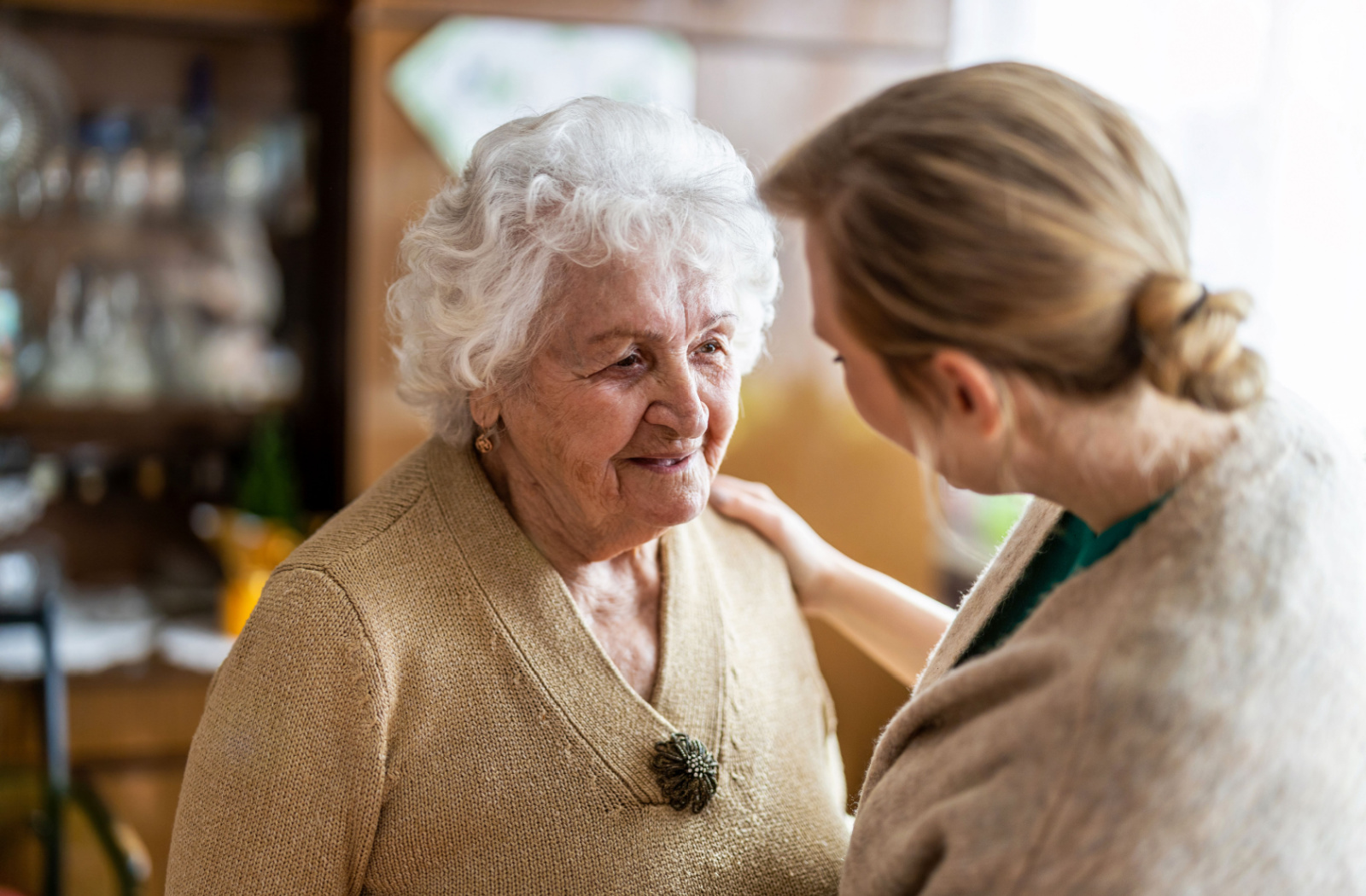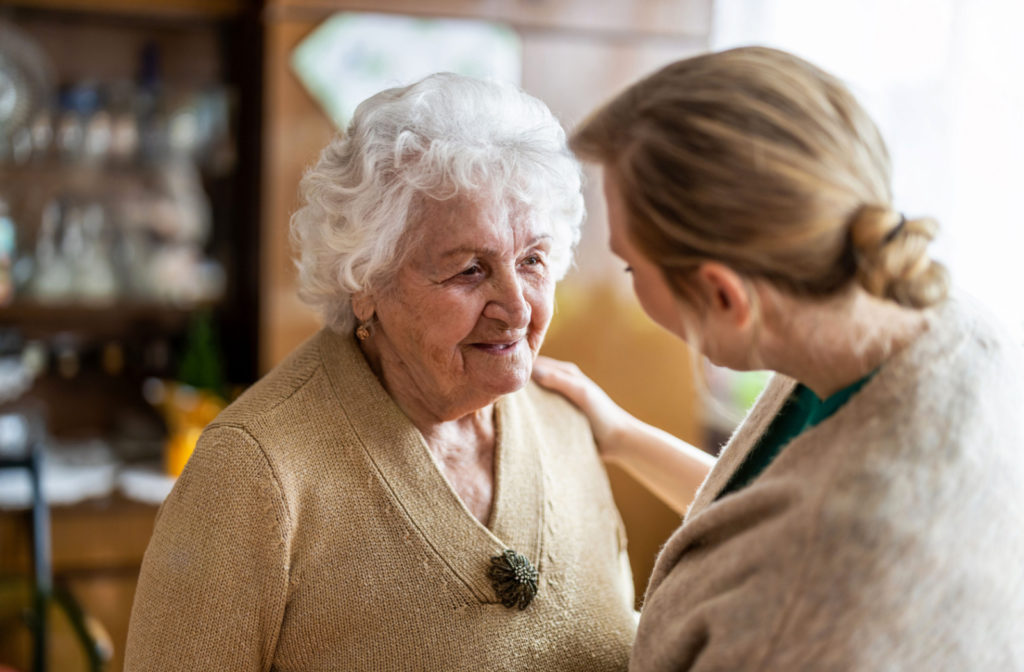Communicating with a loved one who has dementia can be challenging for caregivers. It can be difficult to understand their needs and follow their train of thought at times, especially as dementia progresses.
However, with the right communication strategies, you can improve your communication skills and better connect with your loved one. Some such strategies include:
- Using nonverbal communication
- Keeping things simple
- Using memory aids when appropriate
- Listening attentively
- Avoiding distractions where possible
- Having the right attitude of patience and respect
- Maintaining eye contact
It may also help to get assistance from trained professionals. Memory care can provide an enriching environment in a community of people who understand and can relate to your loved one’s experiences such as Sterling Pointe Senior Living.
Use Nonverbal Communication
While verbal communication is important, it’s essential to use nonverbal communication when communicating with someone who has dementia.
Often, people with dementia may have trouble understanding language, but they can still perceive gestures and facial expressions. Use a gentle tone when speaking, maintain eye contact, and use facial expressions that convey friendliness and warmth.
The Importance of Eye Contact
Eye contact is a great tool to use. It not only helps to keep a person’s attention but also shows that you’re fully engaged in the conversation. It’s a nonverbal way of saying, “I’m here with you, and I’m listening.”
Keep Communication Simple
Simplify your language by using short sentences, and avoid using big or complicated words. Use positive affirmations that reassure and comfort your loved one, such as “You’re doing great,” “I love you,” or “It’s going to be okay.” Keep your tone positive, encouraging, and supportive.
Speak in a calm, unhurried tone and use short, simple sentences. Avoid asking complex questions that can be confusing and may lead to frustration for everyone involved.
Use Memory Aids
Using memory aids can help reduce the frustration and confusion often experienced by people with dementia. You can create visual or auditory cues that will help your loved one with dementia remember phrases or steps in a task.
For instance, a small sign with a picture of a toothbrush on the bathroom mirror can remind them to brush their teeth.
Listen Attentively
Listening to your loved one is one of the best ways to improve communication. Avoid talking over them or interrupting them, allow them to express themselves fully, and ask open-ended questions to encourage conversation. Repeat what they say to ensure you understand their message accurately, as it may not be communicated clearly the first time.
Avoid Distractions
When you’re having a conversation with a loved one who has dementia, remove distractions that may be present during communication, such as a loud television or radio.
Once again, it’s important to establish good eye contact with your loved one and focus on the conversation, giving them your full attention. Keep the environment calm, quiet, and free from stimulating noises and objects and choose a room that is familiar and comfortable for both of you, especially for important topics.
Attitude Goes a Long Way
Let’s talk about attitude. Even when things get tough, try to stay positive, warm, and patient. Your mood can greatly affect theirs, so keeping things light and upbeat can really help. Using appropriate humor can often be helpful in finding common ground and better communication.
Perhaps the most important communication tip for dementia caregivers is to have an attitude of patience and kindness. Dementia can be a challenge for everyone involved, and communication can often be frustrating and difficult, but the right attitude goes a long way.
Try not to get frustrated or angry, even if your loved one is repeating themselves or struggling to communicate. Remember that the person with dementia is still the same person you love and care for.
Seek Support
Caring for someone with dementia can be emotionally challenging. You can seek support from friends, family, support groups, or a memory care community such as Sterling Pointe Senior Living.
Share your experiences and learn from others who have faced similar communication challenges. Taking care of your emotional well-being is crucial for providing the best possible care.

Takeaways for Dementia Caregivers on Effective Communication
Caring for a loved one with dementia can be both rewarding and challenging. Communication with them can be particularly challenging, but it is essential to maintain an open and honest communication line to better understand their needs.
Remember to simplify your language, use nonverbal cues, listen attentively, have an attitude of respect, patience, and kindness, create memory aids, and eliminate distractions. By following these communication strategies, the care you give will be more meaningful and supportive.
Keep in mind that you can always seek support from family, friends, and the trained professionals at Sterling Pointe Senior Living. Book a tour today to see how we can help you and your loved one.



